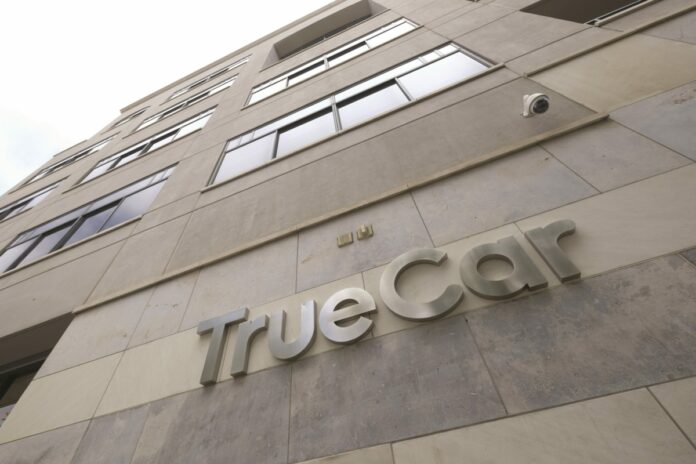TrueCar Inc. reported a net loss this month that sent the stock down by nearly 14%.
The Santa Monica car retailer had a closing price of $3.15 on Aug. 5, the day it reported second quarter financials after the market closed. It decreased to $2.72 the next day.
For the quarter ending June 30, TrueCar reported a net loss of $13.5 million (-15 cents a share), compared with a net loss of $20.4 million (-23 cents) in the same period of the previous year. Revenue increased by 6% from the second quarter of the prior year to $41.8 million.
“The (year over year) … growth in revenue was primarily driven by higher franchise dealer revenue, expansion of TrueCar Wholesale Solutions, and the introduction of our (TrueCar Marketing Solutions) product suite,” the company said in a letter to stockholders reporting the quarterly financial results.
The share price closed at $2.86 on Aug. 8.
In the letter, Chief Executive Jantoon Reigersman and Oliver Foley, the company’s chief financial officer, said there were four main building blocks at TrueCar aimed at increasing revenue.
They are: to bring back dealerships that left the company when supplies became constrained; reduce dealers leaving by doubling down on its commitment to help the firm drive incremental sales; continue to grow average revenue per dealer through its TrueCar Marketing Solutions product offering; and grow revenue from its original equipment manufacturer business by expanding OEM partnerships and continuing to invest in highly effective incentive programs across its network of affinity partners.
“The building blocks we have set forth to meet our targets remain unchanged, as do our long-term goals and we are not wavering on our goal of returning to $300 million in revenue by 2026,” Reigersman and Foley said in the letter.
TrueCar remains steadfast in its commitment to executing against the four building blocks to achieve the long-term growth targets that it has set for the business, the pair added.
“The growth in dealer activations and adoption of our (TrueCar Marketing Solutions) products that we observed in (the second quarter) is evidence that we continue to make strong progress on the building blocks and remain on track for our long-term targets,” Reigersman and Foley said.
“Importantly, we must continue to focus on the things we can control and remain resilient in the face of setbacks outside of our control,” they added.
Not all smooth sailing
One such setback during the quarter was the interruption caused by the CDK Global malware attack.
In mid-June, CDK Global, an Austin, Texas, software provider to more than 15,000 car dealerships in North America, experienced a cyberattack that caused a disruption across the country.
While the outage was far more consequential for those dealers than for TrueCar, it had a downstream financial impact on two of the company’s revenue lines, Reigersman and Foley said.
“Specifically, the revenue we earn from dealers on a pay-per-sale billing model and our performance-based OEM incentive programs,” the two added.
They estimated a loss of approximately $350,000 in pay-per-sale revenue while the incentive programs loss was calculated at about $400,000.
The CDK attack also delayed the launch of TC Plus, an expanded platform where consumers can buy a new or used car from the comfort of their couch through an entirely digital online transaction. The pilot program for TC Plus became available on July 17.
The share price dropped by 6 cents, or just more than 1.5%, from a close on July 17 of $3.74 to a close of $3.68 on the following day.
While used vehicles are currently available for delivery anywhere throughout the contiguous U.S., excluding Massachusetts and New York, delivery of new vehicles will initially only be available to consumers in California for the foreseeable future.
“Over the next several months, this pilot will enable us to validate and refine the technical solutions we have developed to address each stage of the consumer purchasing process, test and develop additional ways to eliminate friction from the consumer experience and identify and solve any dealer pain points that might emerge,” Reigersman and Foley said in the letter.

